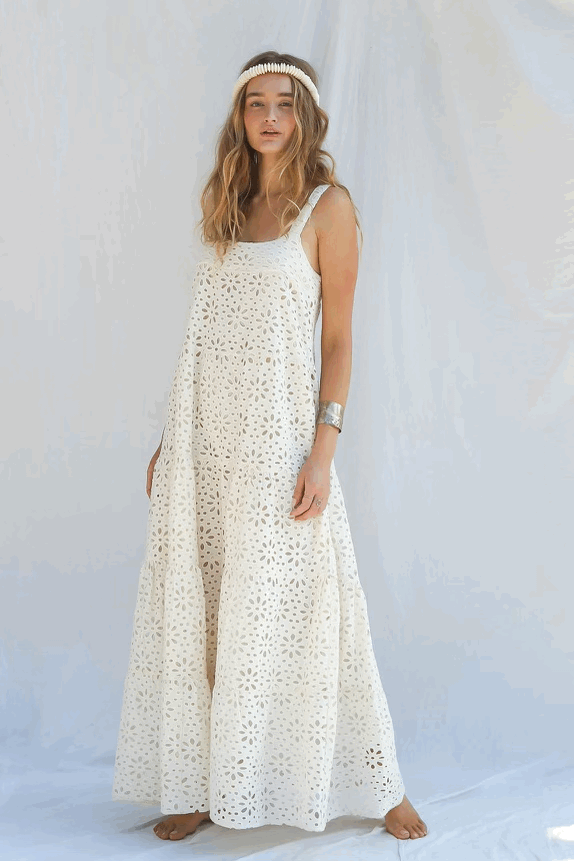Why Is Cotton Better Than Polyester?
I’ve said it once, and I’ll probably say it one million more times: one of my biggest goals with Meadow Collective is to promote sustainability and slow fashion. I want people to know that they can buy clothes that are beautiful and good for the environment. High-quality, fashionable pieces, and sustainable production are not mutually exclusive. But rather sustainable production is necessary to create beautiful, timeless pieces that you can wear for decades.
So, for this blog, I want to explain the importance of choosing natural fibers and why they are better for you, the environment, and your closet. Let’s take cotton and polyester. Since the 70s, polyester has come a long way. It’s virtually used in every clothing industry from athletic wear to breezy sundresses.
And sure polyester might be more wrinkle-resistant and versatile than cotton, but it’s toxic for the environment and you. Plus, it promotes fast fashion that’s based on cheap material you can only get a few wears out of.
Love a good cotton tee!
First of all, polyester is unmistakably bad for the environment. Made out of fossil fuels, polyester requires significantly more energy to produce and process than cotton. The chemical reaction between ethylene glycol and terephthalic acid that makes polyester or polyethylene terephthalate can create major chemical waste and dangerous pollutants.
Secondly, as far as we know now, polyester cannot be recycled. And even though some companies like H&M are trying to create new technologies that recycle polyester, there’s still not much ground being made. Compare this with cotton which is completely recyclable and can be used for decades. Even cotton-polyester blends containing more than 5% polyester cannot be recycled. All of these polyester clothes create a lot of waste, filling landfills and polluting our oceans.
A lot of Jen’s Pirate Booty pieces are 100% organic cotton!
Furthermore, since polyester is made out of plastic, it doesn’t biodegrade like cotton or other natural fibers do. This creates the problem of your polyester clothes shedding microfibers and microplastics. Think about all of the little microfibers you consume after wearing polyester clothes for years on end. After all, it’s estimated that we consume about a credit card’s worth of microplastic every week! How much of that do you think comes from your clothes?
Compared to polyester, cotton is a much better alternative. It’s perfect for summer because it’s cool, and it resists stains much better. Think about all of the times you’ve spilled red wine or ketchup on your shirt and had to throw out one of your favorite pieces. With cotton, you’re much more likely to be able to get that pesky stain out.
Love these Rolla’s shorts
And since cotton is a natural, breathable fabric, it’s much better for you, especially when it gets hot and you’re sweating a lot, i.e., there’s a reason your gyno recommends that you wear cotton underwear.
Additionally, cotton is hypoallergenic, so no matter how sensitive your skin is, cotton is unlikely to irritate it, unlike polyester or even cotton-polyester blends. And if cared for correctly, cotton is much less likely to pill than polyester.
So, all around it seems that at least cotton is the better alternative for you, the environment, and your closet. And remember by buying cotton instead of polyester, we are exercising our consumer vote and demanding that corporations take better care of the environment and make the move to slow fashion. To learn more, check out when cotton featured us.



